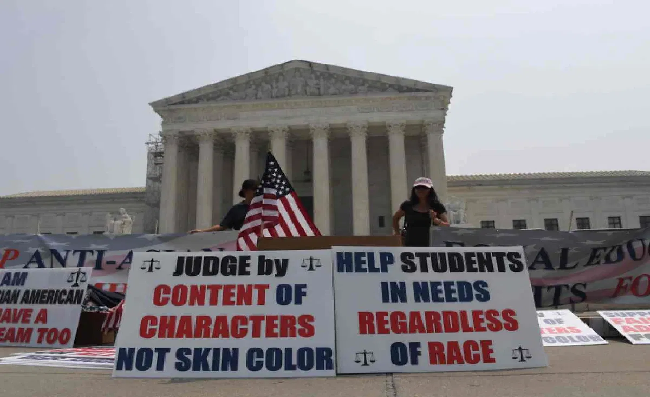.gif)
.gif)

In a landmark decision, the US Supreme Court has ruled to strike down affirmative action in college admissions, prompting institutions of higher education to seek alternative methods of achieving diverse student bodies.
The court's conservative majority overturned the admissions plans of Harvard and the University of North Carolina, the nation's oldest private and public colleges, respectively.
Chief Justice John Roberts, delivering the majority opinion, argued that universities have long erred in their belief that an individual's identity should be determined by the color of their skin rather than the challenges they have overcome, skills they have developed, or lessons they have learned. He emphasized that such a choice is not in line with the country's constitutional history.
However, Justice Sonia Sotomayor voiced her dissent, expressing concern that the decision undermines decades of precedent and significant progress. Justice Ketanji Brown Jackson, the court's first Black female justice, issued a separate dissent, labeling the ruling as "truly a tragedy for us all." Notably, the Supreme Court had previously upheld race-conscious college admissions programs on two occasions in the past 20 years, including as recently as 2016.
The composition of the court has changed since those previous decisions, with three justices appointed by former President Donald Trump now occupying seats. During arguments in late October, all six conservative justices expressed reservations about the practice of affirmative action, which had been upheld by Supreme Court decisions dating back to 1978.
Lower courts had previously upheld the admissions programs at both the University of North Carolina and Harvard, dismissing allegations of discrimination against white and Asian-American applicants.
President Joe Biden and Vice President Kamala Harris have both condemned the Supreme Court's ruling, reflecting their disagreement with the decision to eliminate affirmative action in college admissions.